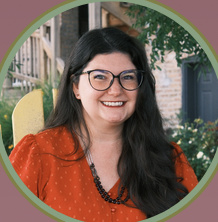
Events
CBIKS Indigenous Sciences Speaker Series: Dr. Elspeth Geiger "Bounty by Fire: The Anishinaabe Legacy of Human-Mediated Fire Regimes on Drummond Island, Michigan"
Anthropology
December 6, 2024
4:00 PM - 5:30 PM

MIT Anthropology is grateful for the opportunity to co-sponsor the Indigenous Sciences Speaker Series talks with the Center for Braiding Indigenous Knowledges and Sciences, CBIKS, at UMASS Amherst (Director: MIT Anthropology Professor Sonya Atalay)
Don't miss the upcoming NSF CBIKS Indigenous Sciences Speaker Series: Bounty by Fire: Dr. Elspeth Geiger 12/6 @ 4PM
Elspeth Geiger is a Curator Path Research Scientist at the Anthropology Field Museum of Natural History & Visiting Professor, Anthropology and Center for Native American and Indigenous Research at Northwestern University. Elspeth's work focuses on the historic period (1615-1760 CE) in the Great Lakes. Her research explores indigenous economies amidst French trade as they relate to Odawa labor organization and local plant subsistence. A specific focus of her work is archaeobotany. Elspeth received her MA in Anthropology from Wayne State University and doctorate from the University of Michigan in 2023. In addition to her archaeological work, she holds a Certificate in Museum Studies, which focuses on Great Lakes ethnobotany in museum contexts.
Dr. Geiger will present "Bounty by Fire: The Anishinaabe Legacy of Human-Mediated Fire Regimes on Drummond Island, Michigan"
Abstract: Northern hardwood forests in Michigan still dominate what is now called Drummond Island, an area within the traditional homelands of Anishinaabe peoples. The fact that for hundreds of years, these forests were the result of reciprocal relationships between humans, fires, and other-than-human plant beings is not only a topic of archaeological interest, but increasingly vital to current tribal initiatives. Using archaeobotanical evidence from the Cloudman Site on Drummond Island, this talk will discuss intentional fire management and human-environmental interactions from the latter half of the Late Woodland period (AD 1200-1600) into the early historic-period (circa AD 1670 -1700).

